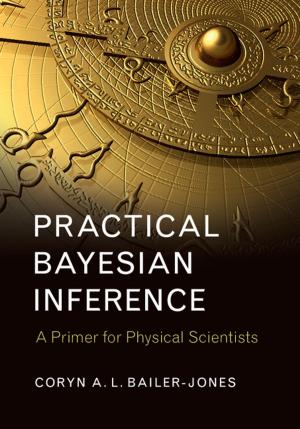Berkeley's A Treatise Concerning the Principles of Human Knowledge
An Introduction
Nonfiction, Religion & Spirituality, Philosophy, Modern, History, Criticism, & Surveys| Author: | P. J. E. Kail | ISBN: | 9781139904124 |
| Publisher: | Cambridge University Press | Publication: | May 15, 2014 |
| Imprint: | Cambridge University Press | Language: | English |
| Author: | P. J. E. Kail |
| ISBN: | 9781139904124 |
| Publisher: | Cambridge University Press |
| Publication: | May 15, 2014 |
| Imprint: | Cambridge University Press |
| Language: | English |
George Berkeley's Principles of Human Knowledge is a crucial text in the history of empiricism and in the history of philosophy more generally. Its central and seemingly astonishing claim is that the physical world cannot exist independently of the perceiving mind. The meaning of this claim, the powerful arguments in its favour, and the system in which it is embedded, are explained in a highly lucid and readable fashion and placed in their historical context. Berkeley's philosophy is, in part, a response to the deep tensions and problems in the new philosophy of the early modern period and the reader is offered an account of this intellectual milieu. The book then follows the order and substance of the Principles whilst drawing on materials from Berkeley's other writings. This volume is the ideal introduction to Berkeley's Principles and will be of great interest to historians of philosophy in general.
George Berkeley's Principles of Human Knowledge is a crucial text in the history of empiricism and in the history of philosophy more generally. Its central and seemingly astonishing claim is that the physical world cannot exist independently of the perceiving mind. The meaning of this claim, the powerful arguments in its favour, and the system in which it is embedded, are explained in a highly lucid and readable fashion and placed in their historical context. Berkeley's philosophy is, in part, a response to the deep tensions and problems in the new philosophy of the early modern period and the reader is offered an account of this intellectual milieu. The book then follows the order and substance of the Principles whilst drawing on materials from Berkeley's other writings. This volume is the ideal introduction to Berkeley's Principles and will be of great interest to historians of philosophy in general.















